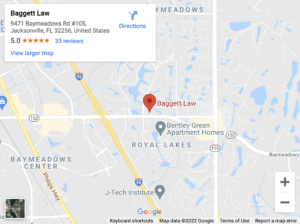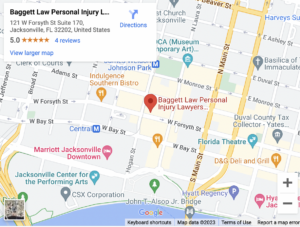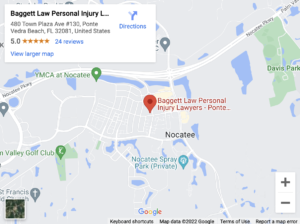
The duty to mitigate damages, otherwise known as the doctrine of avoidable consequences, is the duty to act reasonably to minimize your losses, even though someone else caused those losses.
Although this doctrine applies to contract and personal injury claims, this post will discuss its application to personal injury claims. Failure to mitigate your damages can reduce the value of your personal injury claim.
The Reason Behind the Rule

The rationale behind the duty to mitigate damages makes sense. Its effect is to provide an incentive for you to take reasonable steps to minimize your losses. This rule enhances the public perception that the law is fair. It also prevents unscrupulous accident plaintiffs from capitalizing on their misfortune.
Nevertheless, at-fault defendants and insurance companies frequently abuse this doctrine to avoid compensating victims for damages they caused.
Legal Analysis: Causation
One of the facts you must prove to win a personal injury claim is that the defendant caused the accident that injured you. This element of causation is absent when you exacerbate your misfortune by failing to take reasonable steps to mitigate your damages. You cannot win a personal injury claim without tying the defendant to your injuries through the element of causation.
Examples of Failure to Mitigate Damages
Following are some common examples of failure to mitigate damages in a personal injury claim:
- Refusing medical care for religious reasons;
- Failing to take medication prescribed by your doctor;
- Delaying medical treatment after a car accident because “I can handle it”;
- Failing to go to physical therapy to complete the healing process; or
- Playing contact sports such as football or boxing before a previous concussion has fully healed.
Even if you fail to mitigate your damages, you will not necessarily lose all of them. You might lose only damages that you created yourself through failure to mitigate. However, you could lose all of your damages if it is impossible to determine which of your damages were caused by failure to mitigate and which were not.
The Difference Between Failure To Mitigate Damages and Comparative Fault
The issue of comparative fault arises when two or more parties share fault for an accident. Under Florida’s “modified comparative fault” system, a court will deduct damages from each party in exact proportion to their percentage of fault for the accident. You can be almost certain that the defendant or the insurance company will try to blame you for the accident. In addition, Florida law bars you from recovering damages if you were 51% or more to blame.
This might sound indistinguishable from mitigation of damages, but it is not. The difference between comparative fault and failure to mitigate damages is timing. Comparative fault refers to how you behaved before and during the accident. Mitigation of damages refers to what you do after an accident.
Failure To Mitigate Damages Is an Affirmative Defense
“Failure to mitigate damages” is an affirmative defense that the defendant might try to use against you. Normally, as the injured party, you have the burden of proving your claim, not the defendant.
In an affirmative defense, however, the defendant must prove their defense. In this case, the defendant must prove that you failed to mitigate your damages. Not all possible defenses count as “affirmative defenses,” but this one does.
The Defendant May Not Demand Unreasonable Efforts To Mitigate Damages
To mitigate their damages, the injured victim does not have to sell their home to afford an experimental treatment. The steps they need to take to mitigate either damages need only be reasonable. Of course, lawyers argue daily over exactly which actions are “reasonable,” which is why you probably need a lawyer to assist you.
Sources of the Obligation To Mitigate Damages
The duty to mitigate damages comes from the Florida personal injury law and insurance policy terms. Insurance policy terms might impose stricter standards for mitigating damages than Florida personal injury law.
If the insurance policy terms are unreasonable, the insurance company risks a lawsuit from the injured party based on “bad faith insurance.” However, suppose bad faith insurance does not apply to the terms of the insurance policy you are claiming against. You might be in a situation where insurance policy limits excuse the insurance company from paying some of your damages. Still, you can seek the remainder directly from the defendant.
A Claim of Failure To Mitigate Damages Could Be an Insurance Company Negotiating Tactic
Most personal injury claims settle out of court. Nevertheless, the claim’s value reflects the amount the parties believe a court might award if the case went to trial. If your claim is large, the insurance company might spy on your social media accounts or even hire a private detective to “catch” your failing to mitigate your damages. The insurance company will then exploit its discoveries at the negotiating table.
Seek Legal Assistance as Early as Possible
“Failure to mitigate damages” is one of many legal weapons an opposing party might use against you. An experienced personal injury lawyer should know how to handle this accusation and many other tricks that a defendant or an insurance company might try on you.
Call us at (904) 396-1100 today or contact us online for your free consultation with one of our Jacksonville personal injury lawyers from Baggett Law Personal Injury Lawyers.




